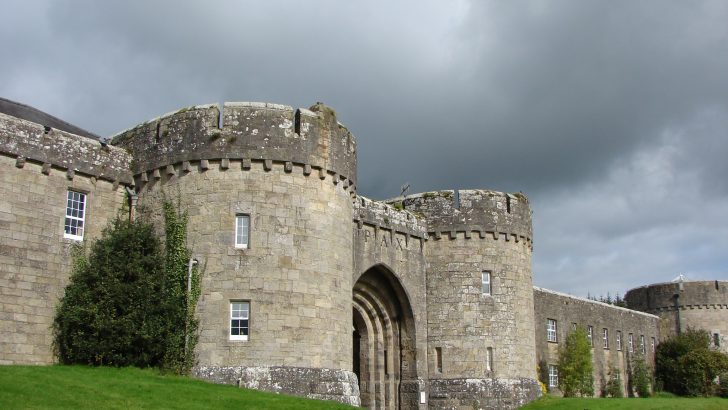Fr Eamonn Fitzgibbon tells Cathal Barry he hopes the synod in Limerick will reinvigorate the diocese
With the first synod to take place in Ireland in half a century fast approaching, organisers are busy putting the final preparations in place.
Delegates met for one last time ahead of the upcoming Limerick Diocesan Synod at Mary Immaculate College and finalised the proposals on which they will vote for or against in April.
The synod’s director, Fr Eamonn Fitzgibbon, explained that the gathering was an important final step for delegates who hadn’t met together as an entire group this year.
“What we have been doing over the past few months is meeting delegates at regional level in local areas. We haven’t had the full group together this year so we were eager to do so,” he told The Irish Catholic.
The meeting served a number of purposes, according to Fr Fitzgibbon.
One of those was to finalise the “number and range of proposals and to give delegates a sense of those so they would be aware of them going into the synod”.
“They developed the proposals themselves but to see the full range of them across the six themes was important,” Fr Fitzgibbon said.
Opportunity
The meeting was also important from a practical perspective, providing organisers the opportunity to “talk the delegates through the process of the synod itself, how it will work, to familiarise them with the voting mechanism, the room and the space and how things will work”.
The most important function of the meeting, however, was to familiarise delegates with the range of themed proposals, on which they will vote at the synod.
The synod’s six themes, which were selected by vote at a day for delegates last October, are:
- Community & Sense of Belonging
- Faith Formation
- Pastoral Care of the Family
- New Models of Leadership
- Liturgy & Life
- Young People
The themes were selected after more than 4,000 questionnaires were submitted.
Proposals
“Delegates are very familiar with those and since October have been involved in developing proposals around those themes. The meeting was really just so that they could see the full range of proposals and get a sense of those,” Fr Fitzgibbon said.
“There are approximately 20 proposals per theme with some variations,” he explained, noting that “there are more on the whole idea of new models of leadership while there are less on other themes such as family and community”.
During the synod, delegates will be using an electronic voting system whereby delegates will have the option to push a button to indicate their preference; yes, no, or yes with qualification, and will receive almost instant feedback on their votes.
Ultimately, the outcome of the voting will provide Bishop Brendan Leahy with a “very clear sense of the minds of the delegates and through the delegates, a sense of the minds of the people of the diocese,” Fr Fitzgibbon said.
The synod will ascertain what the delegates “feelings are on this range of proposals and how they feel issues should move forward,” he said.
At the synod, which takes place over the weekend of April 8-10, delegates will deal with three different themes on both Friday and Saturday, with any outstanding issues being dealt with on Sunday.
The synod itself is a consultative body to the bishop and it makes recommendations to him, Fr Fitzgibbon said, explaining that it is the bishop then who has the “responsibility to see how they can be implemented”.
“It will have to be time lined, its dependent on resources and certain things will have to be prioritised. The detailed operational planning comes afterwards. The synod gives us a very clear direction,” he said.
Fr Fitzgibbon expects a solid pastoral plan to be developed based on the outcomes of the synod. “It is our intention to have a very clear pastoral plan and also a set of statutes about how we go about our business,” he said.
Praising the work of delegates in the synod process to date, Fr Fitzgibbon said “they have been very involved, very committed and have put a huge amount of work into it so I think we really do need to see movement”.
“We need to see real change. We need to see that the synod has had a meaningful effect and will make a meaningful difference.
“I would like to see that we are being proactive towards the future, that we are really taking on the challenges of what lies ahead,” he said.
The most important outcome of the synod for Fr Fitzgibbon, however, is to bring about “a renewed diocese”.
“I would like to see a renewed diocese, a diocese invigorated, that’s the hope. So much commitment has been put into the process it has to make a difference.
“Delegates have put in a huge volume of work and the way in which we can honour that is to listen deeply to what they are saying, listen deeply to what the Spirit is saying and then to effect that call,” he said.


 Cathal Barry
Cathal Barry
